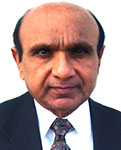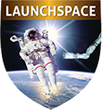Course Details
Course Summary
This course provides comprehensive coverage of the spacecraft power system operation, design and analysis. Attendees are exposed to system level design trades and major design drivers, as well as detailed design methods for various power systems for LEO, GEO and interplanetary missions. Power system dynamics and reliability analyses are addressed. An explanation of performance and life degradation factors on various components enable you to design long-life, low-weight, low-cost satellites by pushing the performance limits of power systems while meeting the requirements. Emerging technologies expected to be flight-ready within the next five years are discussed to prepare students for incorporating them into power system designs as they become available.
Course Materials
Each attendee receives extensive notes and reference materials.
Who Should Attend
Technologists who wish to expand their knowledge base in spacecraft subsystems. Systems engineers who need to know how the power system fits into the overall satellite operational makeup. Program managers needing more data on current developments in spacecraft technologies. Educators who teach related satellite topics at the university level. In summary, this is a must course if you are an engineer or hands-on manager in system engineering, power system design, power component design, power system analysis, software engineering, integration and test, program management or consulting.
What You Will Learn
Development of power system requirements and power budgeting. The nature of various architectures, system design drivers, essential details of component functions and designs. Properties of distribution harness, power protection techniques, and power and energy management. Impacts on reliability, performance and life degradation. Design of power systems for small satellites and planetary missions. Emerging technologies for the future.
Course Outline
- Power System Fundamentals.
Power system requirements. Orbit parameters influencing the design. - System Architectures and System Level Trades.
Power system components, their functions and interfaces. Power budgeting and power profile. Energy balance analysis and sizing of components. - Photovoltaic Power Conversion and Solar Arrays.
Photovoltaic cells (Silicon, GaAs/Ge). Array design for maximum power. Performance degradation factors. - Batteries and Energy Management.
Electrochemical cells (NiCd, NiH2). Battery design for maximum capacity. Degradation factors on capacity and life. - Power Electronics.
Power shunts. Battery charge converter. Battery discharge converter. - Distribution Harness and Protection.
Copper, aluminum, and copper-clad aluminum. Weight minimization by progressive optimization. Current capabilities of single and bundle conductors. Protection: alternatives and selection fuse characteristics and fuse sizing. - Power System Dynamics.
Dynamic bus impedance. Stability criteria. Transient response to load steps. Ripple analysis. Voltage decay and recovery during bus fault. - EMI/EMC Considerations.
- Power Systems for Small Satellites.
- Power Systems for Interplanetary Spacecraft
Solar arrays and their limitations. Nuclear isotope-thermoelectric generators. - Technology Trends.
Advances in photovoltaic cells and arrays. High energy-density batteries. Flywheel energy storage.
Instructor

Mukund R. Patel, Ph.D., P.E., has 50 years of hands-on experience in research, development, design and education in the area of state-of-the-art electrical power equipment and systems. He has served as Principal Engineer at General Electric; Fellow Engineer at Westinghouse Research Center; Senior Staff Engineer at Lockheed Martin; Development Manager at Bharat Bijlee (Siemens), Mumbai, India; and 3M McKnight Distinguished Visiting Professor at the University of Minnesota. Dr. Patel obtained his Ph.D. degree in Electrical Power from the Rensselaer Polytechnic Institute; M.S. in Engineering Management from the University of Pittsburgh; M.E. in Electrical Machine Design from Gujarat University; and B.E. from Sardar University, India. He is a Fellow of the Institution of Mechanical Engineers (U.K.), Associate Fellow of the American Institute of Aeronautics and Astronautics, Senior Life Member of IEEE, Registered Professional Engineer, and a Chartered Mechanical Engineer in the United Kingdom. He is also an Associate Editor of Solar Energy, the journal of the International Solar Energy Society. Dr. Patel has taught 3-day courses to practicing engineers in the electrical power industry for over 20 years, has presented and published over 50 papers at national and international conferences and journals, holds several patents, and has earned NASA recognition for exceptional contribution to the power system design for the Upper Atmosphere Research Satellite. He is the author of a book, Spacecraft Power Systems, and a chapter on Electrical Power in the International Handbook on Space Technologies to be published in 2012.
